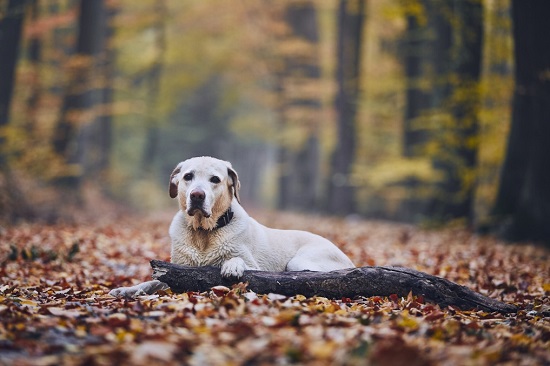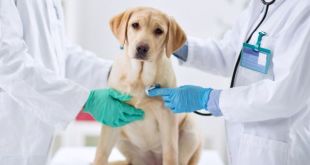Despite their growing age, they are always puppies to us. We always try to deny that our pup is getting older. Even though it’s unfortunate, we can’t prevent aging.
With growing age, the dog would show less enthusiasm in doing things it loved to do once. Like, for instance, chasing the squirrels in the garden.
They may also become slower in the time of greeting after you return home from the office. Developing grey creeping in the muzzle is also a sign of aging. So, it is significant to keep a look at your senior baby.
Grey hair and foggy eye are clear signs of aging in your dog. Also, some internal problems start to show up that we can’t recognize previously or take as a sign of aging.
Maybe it’s a warning symptom of some hidden diseases. But on the other hand, identifying these early symptoms of aging can increase their life span.
If we address these aging issues early, the dogs can spend their lives more comfortably and happily. So, please look over them closely and consult the vet for signs or symptoms.
Learn about health issues in aging dogs that might affect your pet one day. But, the good part of today is dogs can live a longer and happier life with the help of the caring and love of owners and veterinarians.
To keep them healthy, you should come equipped to answer the following questions:
At What Age Is My Dog Considered a Senior?
Usually, a dog becomes a senior when it reaches the age of 7 years. However, it varies from one breed to another. Usually, the larger or giant breeds get their seniority faster than the comparatively smaller breed. In the case of Great Dane, the age of six will be when they would be considered a senior.
Whereas, in the case of medium-sized dogs like corgis, it starts at the age of eight. In small dogs, it starts at the age of 10.
Aging varies from dog to dog. Other factors that affect aging in dogs are environment and genetics. Therefore, if any aging-related health issue arises in dogs, it is considered an issue of aging regardless of age.
Physical and Mental Signs That Your Dog Is Aging
Sometimes slow progression of aging is unidentified by the owners. Hair present in the muzzle and chest and head-turning into a grey color can be a sign. Developing lumps and bumps of tumors on the eyelid are the signs of a poor immune system. However, even these are signs considered within the bracket of a dog’s aging.
With age, they become inactive and solemn. They can have weaker hip bones and deteriorating muscles. They no longer want to jump up in the back of a pickup truck. Their senses start getting weak — their eyesight turns dull. Their hearing isn’t as refined as in its early years.
Mental signs of aging in dogs
They become unsocial and aggressive in old age. They are not keen on their food or play.
Common health issues in senior dogs
#1 Joints
In the case of a large breed common problem arising is arthritis joint problem. As humans, it can also happen to dogs at any age. Dogs are vulnerable to arthritis as they turn older.
Majorly, dogs are esteemed seniors around seven years old, depending on breed. However, even though contemplated a “senior,” your dog still has a lot of life to live.
If your pet is scuffling to jump onto the bed or couch or having difficulty walking upstairs, this may be the symptom of deteriorating joint issues. The joint-related problem develops with age. Unfortunately, there is little cure for such health issues.
You should discuss with your veterinarian if they suggest any medication, supplement, or diet change regarding supporting your dog’s joint.
Nutrition and a healthy diet play an enormous part in supporting joint function with the vitamins and minerals in your dog’s food.
Though no cure is available, few treatments are known to reduce the pain and progression of the problem. Nutrients like Omega 3 fatty acids play a part in supporting joint health. Please talk with your vet about Joint Care, Joint Care Plus, Omega Plus, Joint and Skin Support.
#2 Cancer
There are almost six million dogs detected with cancer every year. Please inform the vet if you notice an unusual lump and bump on your dog. Though lumps and bumps are a part of the aging in older dogs, not all are malignant and can be taken care of. Nevertheless, it always helps to check.
Early diagnosis is the essential factor in controlling this situation. Especially when your dog reaches old age, it is always good to take them for regular screening and check-ups.
There is some good news regarding the increased chance of survival of pets due to neoplasia and cancer through treatment than they did before.
It results due to the advancement of diagnosis, treatment, and identification. Ask your vet about Critical Care & Neoplasia Support.
#3 Heart
Heart issues can evolve with age, and it is imperative to get heart-related problems thoroughly checked and diagnosed by your vet to find the connected system. These may include medication, supplements, or a new low-sodium, cardiac-friendly diet.
One of the significant issues is congestive heart failure due to the heart’s inability to pump blood effectively. For this reason, fluid comes back to the lungs, chest cavity, and even the heart.
If you observe excessive coughing, irregular heartbeat even in low potential exercise, loss of consciousness, unexplained vomiting, difficulty breathing, and more, immediately inform your vet about this heart condition to get them back on track for a better and healthier life.
Your vet may suggest Beef and Russet Potato, Venison and Squash, Turkey and Macaroni, Lamb and Brown Rice, Joint and Skin Support, anal Support Low Protein, Renal Support Moderate Protein, and Hepatic Support Low Fat.
#4 Kidney
Due to the aging process, dogs can develop kidney problems. That is why regular check-ups are required for early detection of the disease and start the treatment to prevent further degradation. Though incurable, it is controllable with a proper diet containing lower protein and phosphorus levels, medication, and supplements, as your veterinarian advises.
Please watch for symptoms related to kidney concerns early on, and let your vet know if you see your pup having excessive thirst or urination. The vet may prescribe Renal Support for Low Protein, Renal Support for Moderate Protein, and Hepatic Support for Low Fat.
#5 Gum and Dental Health
Years of tartar and plaque build-up can be a modus operandi for periodontal disease with a senior dog. Lack of dental care and brushing can develop bad breath, plaque, and organ damage. Tartar built-in stem may travel through the bloodstream.
It can cause heart disease, arthritis, and kidney problem. The best method to prevent the issue is proper brushing daily and dental cleaning by the vet.
Conclusion
Addressing the common aging concerns in dogs is essential for their well-being. Regular veterinary check-ups, proper nutrition, exercise, and tailored care can help ensure a comfortable and fulfilling senior life. In addition, by understanding and addressing their needs, we can give our aging dogs the love and support they deserve.
FAQs
Q: How often should I take my dog to the veterinarian?
Answer: Taking your dog for an annual wellness exam is recommended. Older dogs or those with specific health conditions may require more frequent visits.
Q: What should I feed my dog for optimal health?
Answer: A balanced and nutritious diet that suits your dog’s age, breed, and specific dietary needs is best. Consult with your veterinarian for personalized recommendations.
Q: How can I keep my dog’s teeth clean?
Answer: Regular brushing with dog-specific toothpaste, dental chews, and professional dental cleanings can help maintain good oral hygiene and prevent dental issues.
Q: How can I prevent fleas and ticks on my dog?
Answer: Use flea and tick preventatives recommended by your veterinarian, regularly check for parasites, keep your dog’s environment clean, and avoid areas infested with fleas and ticks.
 DogExpress
DogExpress



















 in Chandigarh, India.
in Chandigarh, India. 

